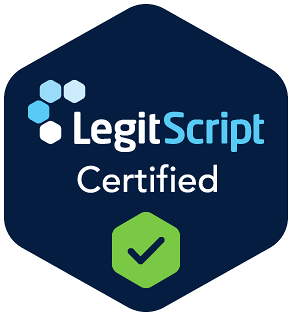What is Holistic Healing in Addiction Treatment?
Holistic healing refers to an approach that addresses the whole person—mind, body, and spirit—rather than just focusing on the addiction itself. It emphasizes treating the underlying causes and contributing factors of addiction, as well as promoting overall wellbeing and health. Take a look at what holistic healing looks like in action:
A Comprehensive Approach
Holistic healing considers all aspects of an individual’s life that may contribute to addiction, such as mental health issues, trauma, physical health, and social environment. Closely examining the tie between stress and addiction allows those in recovery to make strides in identifying what in their life may be triggering anxiety and depression.
Integrated Therapies
Integrating traditional addiction therapies, like counseling and support groups, along with alternative therapies, such as yoga, meditation, acupuncture, and art therapy. Traditional addiction therapies allow for the rebuilding of relationships in recovery while alternative therapies have been shown to lessen symptoms of anxiety and depression.
Focus on Wellness
The emphasis is on promoting overall wellness, including physical fitness, nutrition, stress management, and healthy lifestyle habits. These elements are essential for combatting withdrawal symptoms on the road to long-term recovery.
Personalized Treatment Plans
Holistic healing recognizes that each person’s journey to recovery is unique. That’s why treatment plans at our Maryland recovery centers are personalized to address the specific needs, preferences, and circumstances of each individual.
Mind-Body Connection
Taking a holistic approach means acknowledging the interconnectedness of mental, emotional, and physical health. Spiritual malady, or an imbalance in thoughts, emotions, and beliefs, can often contribute to substance abuse. Recognizing this and incorporating practices like mindfulness and yoga helps individuals manage withdrawal symptoms.
Benefits of Mindfulness Practices
Mindfulness practices offer a wide range of benefits in addiction treatment. By focusing on the present moment and developing awareness of one’s thoughts and emotions, individuals can cultivate a sense of inner peace and balance. This increased self-awareness can lead to a deeper understanding of one’s body and its needs, facilitating a more harmonious relationship between the mind, body, and spirit.
Mindfulness helps individuals become more aware of their emotions and sensations without reacting impulsively. This awareness can reduce withdrawal symptoms and help manage stress, anxiety, and depression—common triggers for substance abuse.
Practicing mindfulness also enhances cognitive function, including attention and decision-making abilities. This can help individuals make more conscious and deliberate choices, reducing the likelihood of relapse. Individuals learn how to work through discomfort and tips for managing difficult emotions which in turn helps with relationships in recovery.
The Connection Between Mental Health and Addiction
Addiction is often intertwined with mental health issues, creating a complex and interconnected web that can be challenging to untangle. Many individuals struggling with addiction are also battling underlying mental health conditions such as anxiety, depression, or trauma. These mental health issues can contribute to the development of addiction, as individuals may turn to substances or behaviors as a way to cope with their emotional pain or distress. It is crucial to address both addiction and mental health concerns simultaneously in order to achieve lasting recovery and holistic healing. By understanding the connection between mental health and addiction, individuals can begin to unravel the layers of their suffering and embark on a journey towards true healing and well-being.
Creating a Holistic Recovery Plan
In order to create a holistic addiction treatment plan, it’s important to consider all aspects of your wellbeing: mind, body, and spirit. This involves developing a personalized approach that addresses your unique needs and goals. At Hygea Healthcare, we start by examining current habits and routines, and identify areas where you can make positive changes to support your recovery journey. You may want to consider incorporating practices such as mindfulness meditation, yoga, or journaling to promote mental clarity and emotional wellbeing.
Additionally, seek out support from a variety of sources, including therapy, support groups, and trusted loved ones. Surround yourself with people who uplift and inspire you, and who can offer guidance and encouragement when needed. Take time to cultivate a sense of purpose and meaning in your life, whether through creative pursuits, volunteering, or spiritual practices. By integrating these elements into your daily routine, you can create a holistic recovery plan that nourishes your mind, body, and spirit, and supports you on your path towards healing and wholeness. This comprehensive approach will help you build a strong foundation for long-term recovery and overall well-being. Need help getting started? Learn more about how our Maryland addiction treatment center can help you on the path to recovery.




